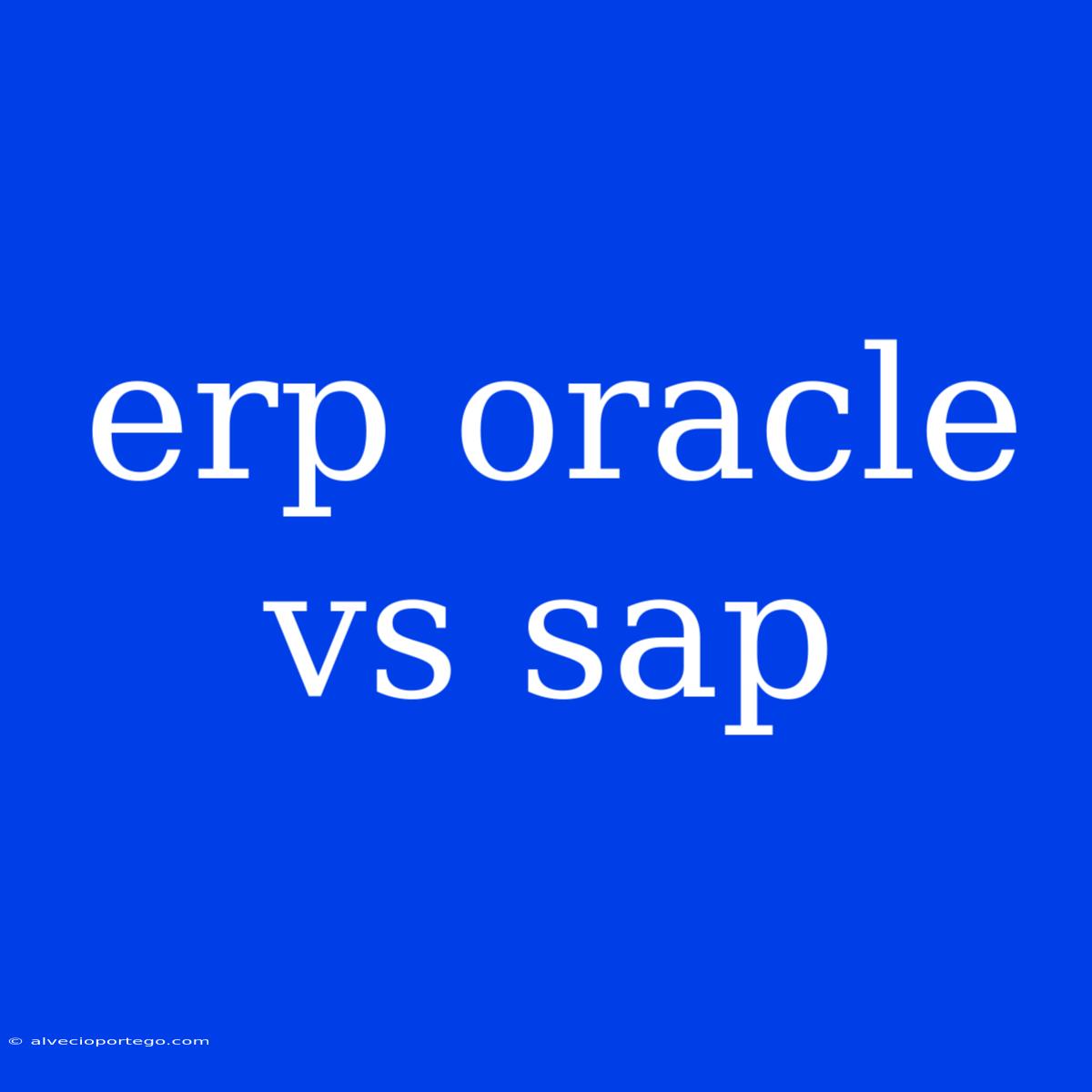Oracle vs SAP: Which ERP Giant Reigns Supreme?
Choosing the right Enterprise Resource Planning (ERP) system is a crucial decision for any organization. Two of the biggest players in the ERP market are Oracle and SAP. Both offer comprehensive solutions designed to streamline business processes, improve efficiency, and drive growth. But how do you choose the right one for your specific needs?
This article delves into the key differences between Oracle and SAP, highlighting their strengths, weaknesses, and helping you understand which solution might be the best fit for your organization.
Understanding the Landscape
Oracle is a global technology company known for its database management systems, cloud computing solutions, and, of course, its robust ERP offerings. Its ERP solutions are particularly popular for large enterprises and have a strong presence in industries like manufacturing, finance, and retail.
SAP is another dominant player in the ERP market, boasting a vast global customer base and a reputation for innovation. SAP's ERP solutions are renowned for their industry-specific expertise, catering to a wide range of sectors, including automotive, healthcare, and consumer goods.
Key Differences:
1. Pricing and Licensing:
-
Oracle: Oracle's pricing model often involves a combination of upfront licensing fees and ongoing maintenance costs. It can be a complex system with varying licensing options and can potentially be expensive for smaller businesses.
-
SAP: SAP offers a variety of licensing models, including subscription-based options. This makes it more accessible to businesses of different sizes and can provide greater flexibility in terms of cost management.
2. Implementation and Customization:
-
Oracle: Oracle ERP implementations can be complex and time-consuming, requiring significant expertise and resources. While offering extensive customization options, this can also lead to higher development costs and potentially impact implementation timelines.
-
SAP: SAP boasts a reputation for faster and more efficient implementations, although some customization might require additional effort. It offers pre-configured solutions and industry-specific templates, which can streamline the process.
3. Functionality and Features:
-
Oracle: Oracle ERP systems are known for their comprehensive functionality, covering a wide range of business processes like finance, supply chain management, human resources, and customer relationship management. They offer advanced analytical capabilities and integration with other enterprise applications.
-
SAP: SAP excels in its industry-specific expertise, providing deep functional capabilities for various sectors. It emphasizes integrated business processes and offers a wealth of features tailored to specific industry needs.
4. Cloud-Based Solutions:
-
Oracle: Oracle offers a strong cloud-based ERP solution - Oracle Cloud ERP - with a comprehensive suite of modules and features. It focuses on flexibility, scalability, and rapid deployment.
-
SAP: SAP also offers robust cloud-based ERP solutions like SAP S/4HANA Cloud. It emphasizes ease of use, mobile accessibility, and integration with other cloud-based services.
5. Customer Support and Training:
-
Oracle: Oracle provides extensive customer support options, including online resources, documentation, and dedicated support teams. They offer comprehensive training programs and certifications.
-
SAP: SAP also offers comprehensive customer support and training programs. They are known for their active user communities and extensive knowledge base, providing resources for learning and problem-solving.
Choosing the Right Fit:
Ultimately, the best ERP system for your organization depends on specific factors like:
- Industry: What industry do you operate in? Are there specific industry-specific solutions that are critical to your success?
- Size: How big is your company? Are you a small business or a large enterprise?
- Budget: What is your budget for an ERP system? Consider upfront costs, ongoing maintenance, and potential customization expenses.
- Integration Requirements: What existing systems do you need to integrate with your ERP solution?
- Implementation Timeline: How quickly do you need to implement the system?
Conclusion:
Both Oracle and SAP are powerful ERP solutions with their own strengths and weaknesses. Oracle excels in its comprehensive functionality and robust enterprise-level features, while SAP shines in its industry-specific expertise and simplified implementation options.
By carefully considering your organizational needs, budget, and future goals, you can determine which ERP giant is the right fit for your business. Remember to conduct thorough research, seek expert advice, and carefully evaluate both solutions before making your final decision.

